theScore's Never-Been-An-All-Star All-Star rosters
Part of the fun of All-Star weekend is seeing the players who have long defined the league - the LeBrons, the KDs, the CP3s - showing up year after year, greeting each other like the old frenemies they are, and unleashing their signature moves for our entertainment, like a favorite band playing all the hits.
But the real thrill of the game - what keeps it fresh after the old guys have mostly lost interest - is seeing the first-timers. Which young guns can hang with the established vets? Which long-snubbed semi-star makes the most of their overdue recognition? And who just seems completely, hopelessly out of their depth? It's the most underappreciated drama of the night, every year.
Undoubtedly, this year's All-Stars will include some first-timers - some as obvious locks, and some just barely making the cut. But what would it look like if this year, we gave all the players who've been previously recognized the week off, and opened the game to 24 newbies? Here's an idea of how that might turn out by conference, still observing guard/frontcourt/wild-card positional requirements.
Eastern Conference
Starters
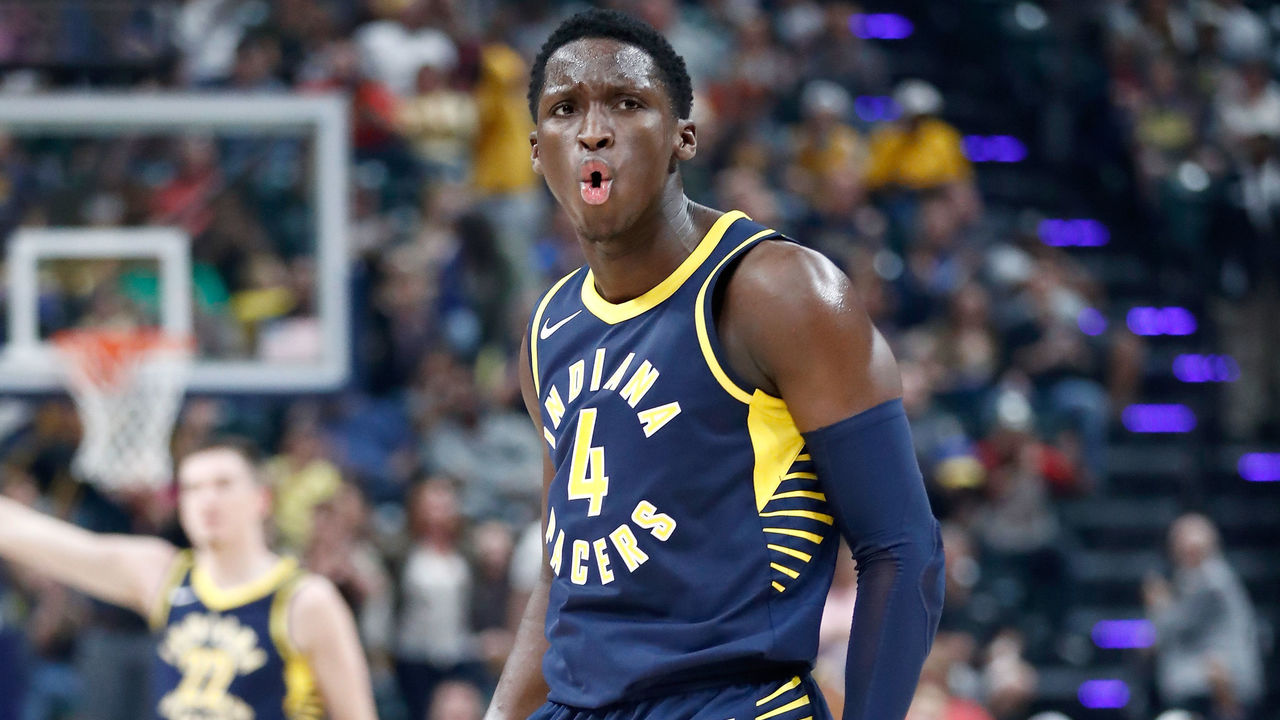
Victor Oladipo (Indiana Pacers, G). There's a brewing "Why shouldn't Oladipo be a starter?" movement for the real All-Star Game, and why not? His numbers (averaging about 24-5-4 on 49/41/79 percent shooting) are comparable to Kyrie Irving and DeMar DeRozan - with better defense and a lesser supporting cast on a playoff-bound team that's currently surging. In the only five games he's missed this season, the Pacers fell apart, going 0-5 with losses to Dallas and Chicago. He's one of the best stories of the season, and a no-brainer here.
Bradley Beal (Washington Wizards, G). It's sorta crazy that Beal hasn't made it yet, but injuries and team inconsistency - not to mention his starrier backcourt partner - have kept him on the bubble. Despite a lousy 2017-18 for the Wizards that most recently includes an embarrassing loss to the Hornets, this season should be his best case yet: roughly 24-4-4 averages on 56 percent true shooting, and most importantly, 45 out of 45 games played. Especially with John Wall missing time and not producing to his usual standard, Beal should make the ASG proper, and he's a quality choice for starter here.
Joel Embiid (Philadelphia 76ers, FC). Regardless of what side you take in the Embiid versus Al Horford NBA debate currently embroiling basketball Twitter, it's pretty clear that both players should and will make the game. And since Horford was a four-time All-Star with the Hawks and Embiid got hurt again before he could make a credible case last season, there's no controversy here: Embiid's in, and he might be the early front-runner for Never-Been-All-Star Game MVP.
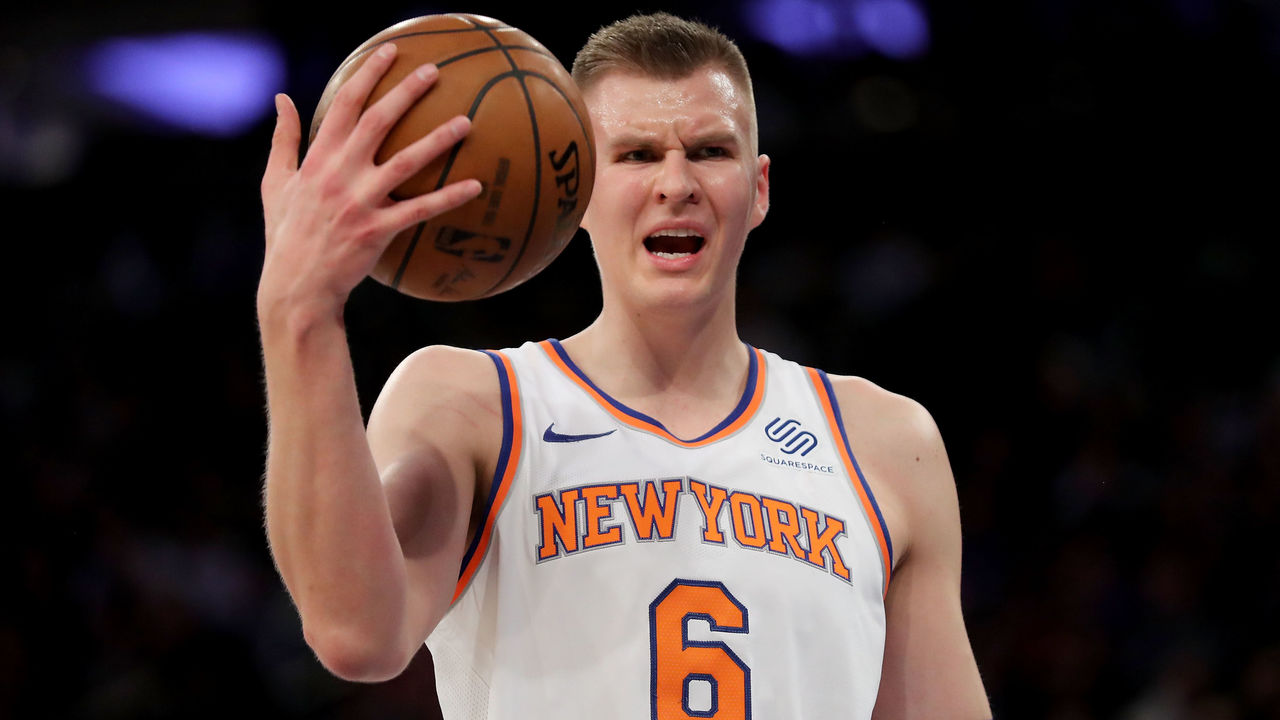
Kristaps Porzingis (New York Knicks, FC). Porzingis has slowed down considerably after a torrid start that had understandably overzealous Knicks fans calculating how high he might finish in the MVP rankings, and the Knicks have sagged with him, falling four games out of the playoffs. Still, 23.6 points and 7.2 rebounds while shooting 38 percent from three and leading the league in blocks is a hell of a junior season, and while he may be more of a down-ballot selection for this year's ASG, he remains an easy choice here.
Tobias Harris (Detroit Pistons, FC). The fifth starter is a much tougher choice than the other four, largely because the most obvious choices in the East are in the backcourt. Ultimately, the best selection is probably a seventh-year guy unlikely to end his All-Star drought this season: Harris, who's averaging career highs in points (18.2) and 3-point percentage (42) for a team that - until point guard Reggie Jackson went down three weeks ago - has overachieved. Harris can stretch the floor for Kristaps and Joel a little, at least.
Reserves
Ben Simmons (Philadelphia 76ers, G). There's some argument about whether Simmons counts as a guard or a frontcourt player - essentially, he's the former on offense and the latter on defense - but Simmons, his management, and his coaches have taken great pains to refer to him as an unequivocal point guard, so let's grant his wish. Anyway, Simmons' lackluster shooting and cooled-down 2018 numbers prevent him from edging out Oladipo or DeRozan as a Never-Been-All-Star starter - and as a rookie, he feels less ripe for the distinction anyway. Still, his tremendous stats (approximately 17-8-7) and strong, versatile defense make him a hell of a sixth man.
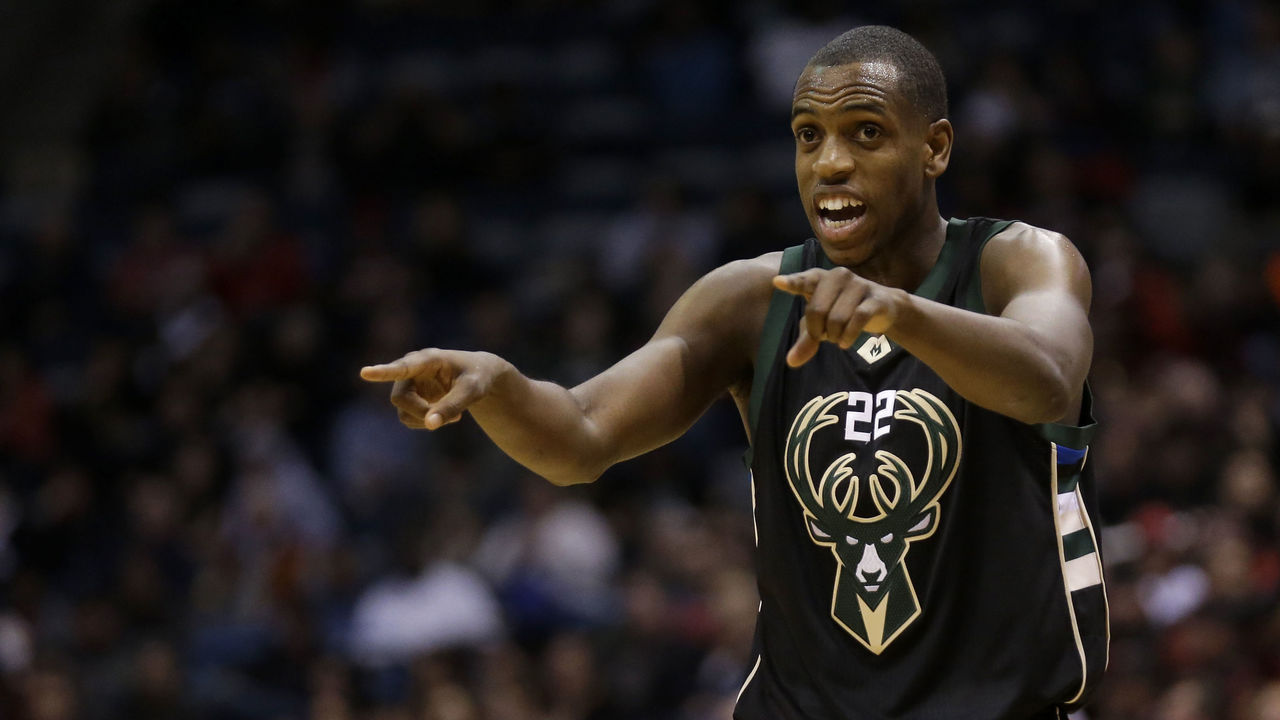
Khris Middleton (Milwaukee Bucks, G). Another player you'd love for the frontcourt, Middleton mostly slots as the two-guard for the super-sized Bucks, so we'll keep him there. It's a little surprising that Middleton doesn't have more All-Star juice this season: about 20-5-4 with fine wing defense on a winning team would usually earn some recognition, even if his shooting numbers aren't as scorching as previous years, and his winning team hasn't been winning a ton lately. Still, without the previously selected Giannis Antetokounmpo available to overshadow him, Middleton finally gets his moment in the sun.
Aaron Gordon (Orlando Magic, FC). The Magic have been so bad since the calendar turned to December that Gordon's long-awaited breakout swiftly disappeared from the national radar. Still, the fourth-year player has put up by far the best numbers of his career - averaging 18.6 points and 8.0 rebounds while improving his 3-point shooting to an eminently reasonable 37 percent - and given Magic fans reason to hope that they might've unearthed at least one potential star in a half-decade of lousiness. We'll see if Gordon ever gets all the way there, but he's already done enough to get here (though feel free to swap in his stat-stuffing teammate Nikola Vucevic if you so desire).
Otto Porter (Washington Wizards, FC). As his 3-point percentage slides a little after a red-hot start, Porter's numbers aren't wildly different than they were last season: around 14-6-2 on 43 percent shooting from deep. But his 3-and-D skills have proved invaluable to the Wizards this season: Washington rates better on both sides of the ball when he's on the court, and in terms of ESPN's Real Plus-Minus, he's second only to LeBron James among small forwards.
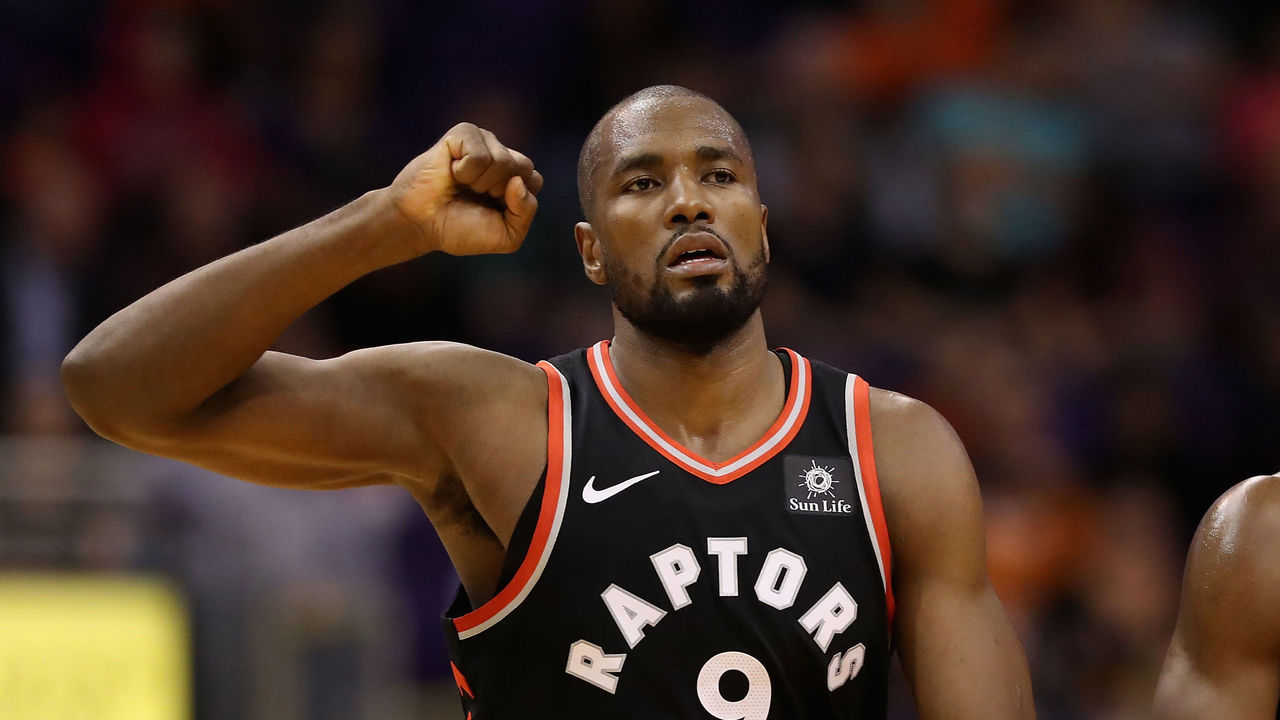
Serge Ibaka (Toronto Raptors, FC). Enough of all these young guys - let's give a spot to a dude who was the third-most-important player on a championship contender for the better part of a half-decade. Ibaka doesn't have quite the same statistical impact (13.4 points and 6.1 rebounds with 1.5 blocks) this late in his career as he did in his peak OKC years, but his rim protection is still a critical part of the Raptors' top-five defense, and his floor-spacing makes life easier for everyone in the Raps' top-five offense.
Goran Dragic (Miami Heat, WC). Like Ibaka, Dragic isn't having his best year statistically - in fact, his numbers (about 17-4-5 on 44 percent shooting) are down pretty well across the board from last season - but as the veteran leader of one of the East's better teams and a longtime borderline All-Star, he gets the lifetime-achievement nod. He potentially should have been joined by teammate Hassan Whiteside, but the big man's missed 18 games - too many even for Never-Been-All-Star consideration.
Dennis Schroder (Atlanta Hawks, WC). It's unclear if anyone outside (or maybe even inside) Atlanta has spent any ink on Schroder's fifth season - playing for the tanking-est team in the league has a similar effect on your level of national exposure - but he's had something of a breakout season, averaging 20.1 points and 6.8 assists for the NBA-worst Hawks. His 3-point shooting and defense still leave much to be desired, but he's not gonna get many other plaudits this season, and the Hawks have racked up a couple big wins lately, so let's give Schroder the last spot.
East Honorable Mention: Jayson Tatum (Celtics, FC), Robert Covington (76ers, FC), JJ Redick (76ers, G), Eric Bledsoe (Bucks, G), Spencer Dinwiddie (Nets, G)
__________
Western Conference
Starters
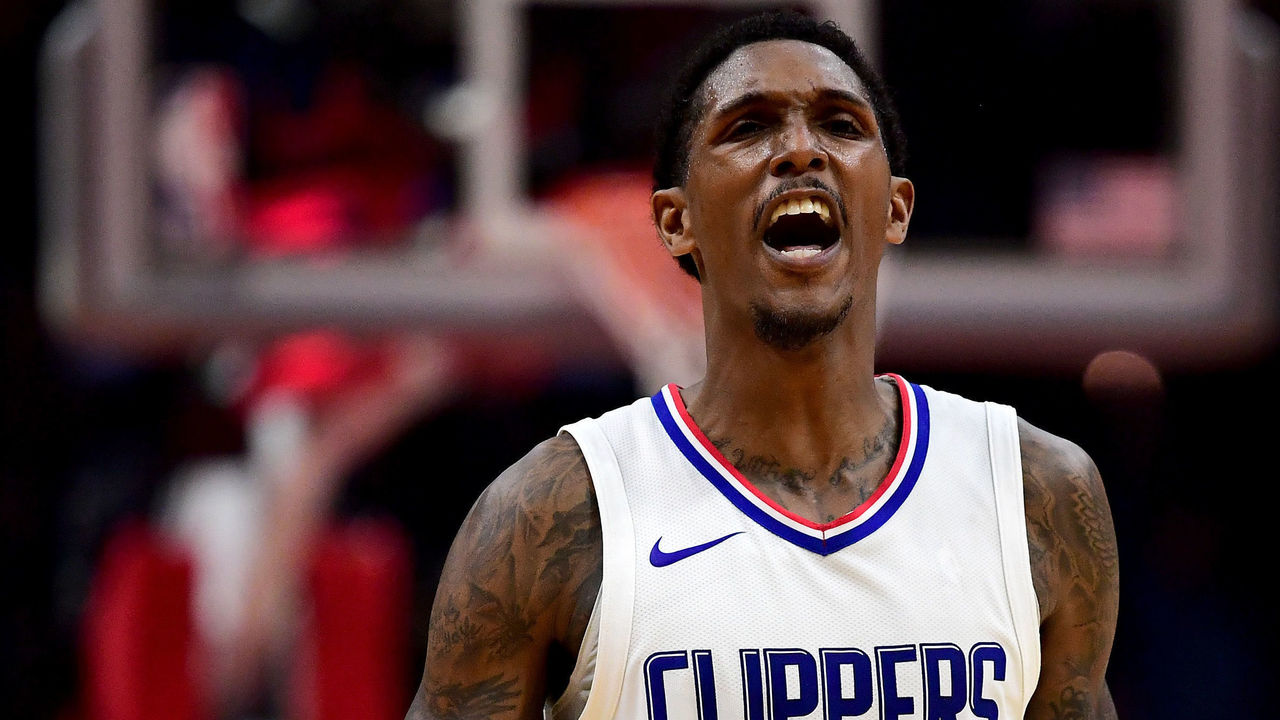
Lou Williams (Los Angeles Clippers, G). Maybe it's strange to have Williams starting the Never-Been-All-Star Game when he's started just 103 times in his 824-game career. But he's made 13 of those starts for the Clippers this season, and what a difference those (and the 30 games he's played off the bench) have made in what could have been a totally lost year for the Clips. He's averaging a stunning 23.2 points a game on nearly 61 percent true shooting, helping power L.A. to a plus-.500 record in a season when pretty much every one of his meaningful teammates has missed significant time with injury. Thanks to the West's endless supply of star guards, Williams might be squeezed out of the midseason classic, but the 31-year-old's got a spot here.
Devin Booker (Phoenix Suns, G). In previous seasons, Booker's numbers could be written off as empty stats on a bad team. The Suns aren't necessarily that much better in Booker's third season, but the Kentucky shooting guard is more dangerous and more efficient than ever: Not only is he averaging 25.2 points, he's handing out nearly five assists a game with 57.6 percent true shooting, all easily career bests. The defense may still be a work in progress, but the rest of the 21-year-old's game should make the rest of the West weep in terror for the future.
Nikola Jokic (Denver Nuggets, FC). Jokic's jaw-dropping breakout came a little too late in his sophomore season for him to make a serious push for the All-Star team, but this year, he's got nowhere to hide as he averages about 16-10-5 as the offensive hub of the possibly playoff-bound Nuggets. The 48 percent shooting is down from his unsustainable 57 percent last year, but he's still one of the West's most effective big men, and rates second behind only DeMarcus Cousins among centers in Real Plus-Minus.
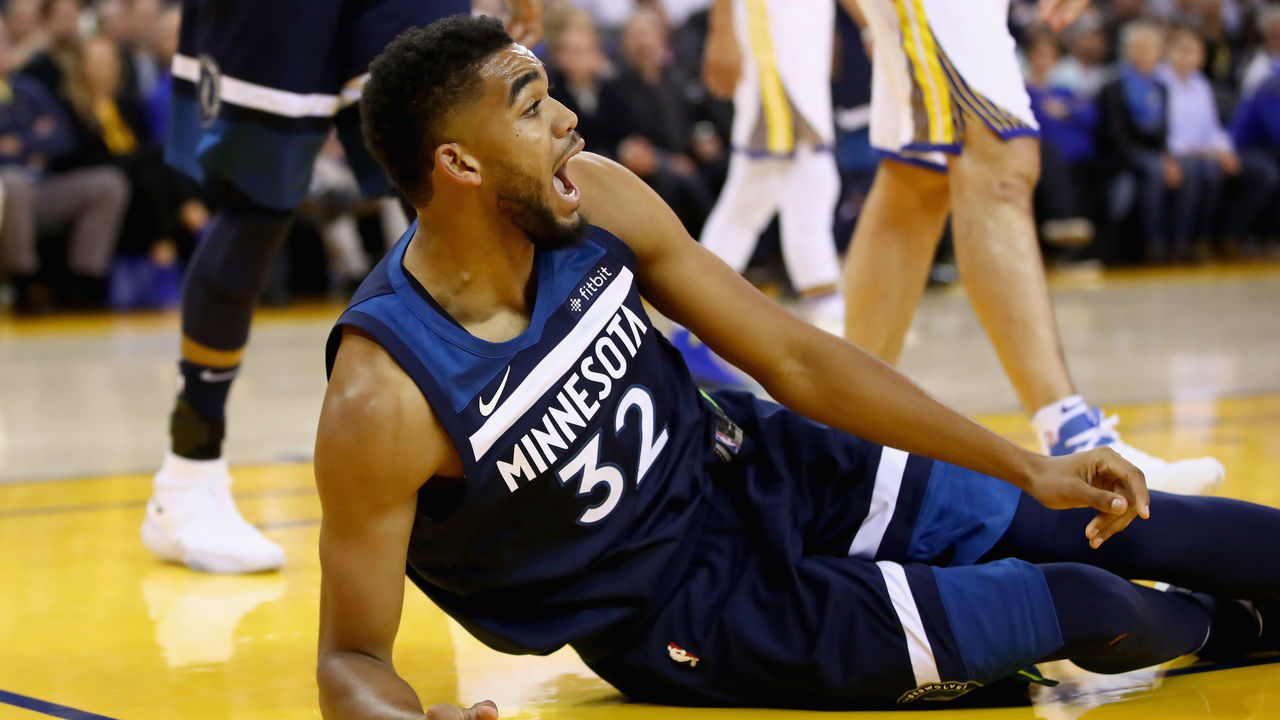
Karl-Anthony Towns (Minnesota Timberwolves, FC). Ranking two spots behind Jokic in RPM among centers is Towns, another likely first-timer in the game proper. Though defensive concerns have plagued KAT seemingly since he entered the league - partly due to the lofty expectations draft-watchers had for him in that respect coming out of Kentucky - he's allayed some of those worries in recent months under the leadership of coach Tom Thibodeau and Jimmy Butler. He's also still putting up around 20 and 12 while improving his 3-point shooting to 42 percent for a team en route to its first playoff appearance in 14 years. He'll be a regular fixture in the real All-Star Game soon enough.
Steven Adams (Oklahoma City Thunder, FC). Adams may be the best player in the West this season who nobody has any interest in talking about. So much of the discussion surrounding Oklahoma City this season focuses on the integration of recently acquired stars Paul George and Carmelo Anthony that Adams has slipped under the radar despite being about as productive and important as either: 13.6 points and 8.8 rebounds (leading the league in total offensive rebounds), with a steal and a block per game on 64 percent shooting while anchoring the team's top-five defense. The on/off splits and advanced efficiency stats aren't quite as kind to Adams' individual D this season, but his built-in chemistry with Russell Westbrook has been crucial to giving the Thunder any kind of consistency as they struggled to work in their new players.
Reserves
C.J. McCollum (Portland Trail Blazers, G). The Bradley Beal of the West, McCollum's another consistent producer held back by his health and his better-established backcourt partner. His numbers are actually off his superlative '16-'17 season, but still stellar for a two-guard: 21.6 points per game on 43 percent shooting from long range, and much improved since the calendar turned to 2018. All-Star appearances will be hard to come by for non-franchise guards in the West for the foreseeable future, so he could be coming off the bench for these never-beens well into the next decade.
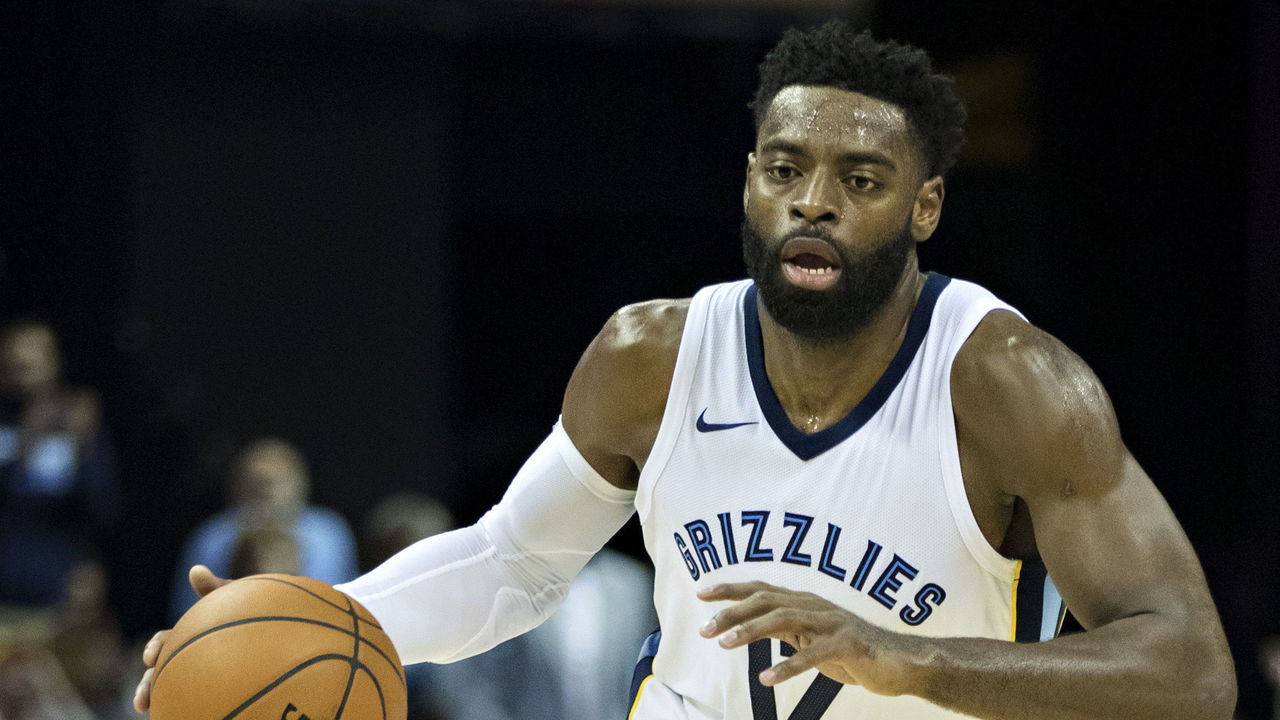
Tyreke Evans (Memphis Grizzlies, G). Mike Conley has been right on the All-Star bubble for so long that you may as well call these guys the Mike Conley All-Stars - not this year, though, as he's played just 12 games. In his stead, here's Evans, the wayward 2009-10 Rookie of the Year who's found a home in Memphis. He's averaging numbers like he did his rookie year (around 20-5-5) with career-best efficiency, mostly while coming off the bench for the flailing Grizz. In terms of this season's most unexpected developments, Evans being a more viable All-Star than Marc Gasol has gotta rank pretty high.
Clint Capela (Houston Rockets, FC). It might be as much of a squeeze in the frontcourt for the West this season as it is in the backcourt, as evidenced by the fact that no one is taking Capela - 14.3 points and 11.1 rebounds on 67 percent shooting with nearly two blocks a night for the second-best team in the West - all that seriously as an All-Star candidate. But he's leading the league in field-goal percentage, he's top 10 in PER, and the Rockets lost the last four games he sat out, proving he's just as integral to the team's success as the two perpetual MVP candidates in the backcourt.
Harrison Barnes (Dallas Mavericks, FC), Taj Gibson (Minnesota Timberwolves, FC). OK, maybe the West frontcourt does start to thin out a little here. At this point, you're basically choosing between role players on good teams or focal players on bad teams. So let's go with one each: Barnes, who's shouldering the load (18.7 points a night on respectable shooting) for a frisky but faltering Mavericks team that's a couple years and a couple players away from doing much of note in the West; and Gibson, a defensive-minded forward who'll probably never average 15 points or 10 boards a game, but is having one of his most efficient seasons (57 percent shooting, 16.0 PER) under his old coach.
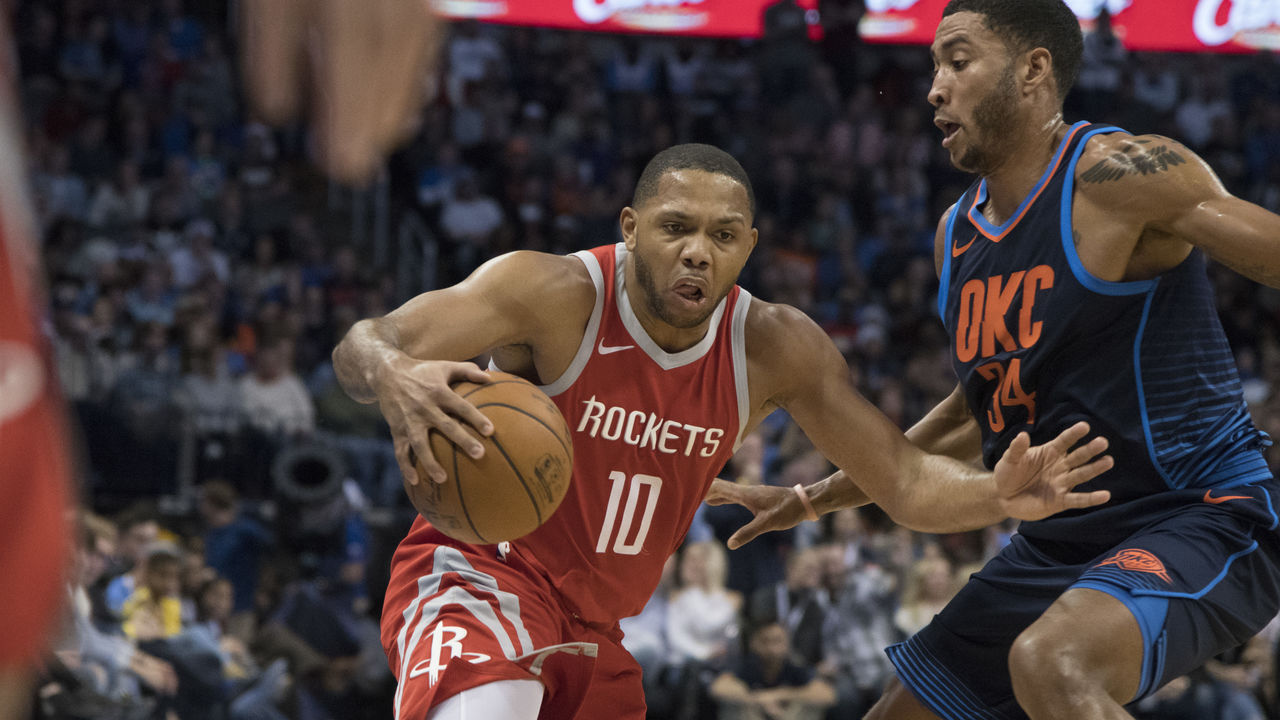
Eric Gordon (Houston Rockets, WC). The shooting numbers - 42/34/83 - haven't been tremendous for Gordon, and if he's not scoring, he's not giving you a ton else. But one way or another, he gets his nearly 20 points a night for the second-best offense in basketball - whether starting or coming off the bench - and he's found his way into the top 10 in RPM among shooting guards. Early-career injuries may have robbed him of his chance of growing into a perennial All-Star, but he's earned his nod for the never-beens.
Gary Harris (Denver Nuggets, WC). Apologies to Donovan Mitchell, who should be a shoo-in for this team as soon as next season, but the (relative) vet gets the edge. Harris has improved by leaps and bounds every year he's been in the NBA, and has arguably been the Nuggets' most consistent contributor on both sides of the ball in his fourth season. He's a superlative 3-and-D guy at worst, and his 17.2 points a game - including a pair of 36-point outbursts against Boston and Phoenix - on 50 percent shooting show he has the explosiveness to be far more than that. In other words, he should become another increasingly familiar presence on All-Star snub lists.
West Honorable Mention: Mitchell (Jazz, G), Kyle Kuzma (Lakers, FC), Trevor Ariza (Rockets, FC), Andrew Wiggins (Timberwolves, FC)
(Photos courtesy: Getty Images)